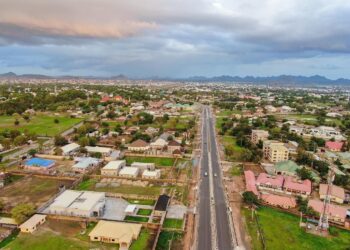Nigeria received $5.82 billion capital inflows in the second quarter (Q2) of 2019, compared to $8.48 billion in the first quarter (Q1). This is revealed in the latest capital importation data released by the National Bureau of Statistics (NBS).
According to the NBS report, the $5.82 billion capital importation in the first quarter represents a -31.41% contraction from the total amount ($8.48 billion) received within the last quarter.
Also, Capital inflows at $5.82bn in Q2 2019 compared to $5.51 billion in Q2 2018 represents a year on year growth of 5.56%.
The Details: Basically, Nigeria’s capital importation is categorized into three investment types, and these include Portfolio Investment, Foreign Direct Investment (FDI) and Other Investment.
The Portfolio Investment in Nigeria is made up of three items which include Equity, Bonds and Money Market instruments. During the period under review, the largest amount of capital importation by type was received through portfolio investment, which accounted for 73.76% ($4.29 billion) of total capital importation.
- Money Market instruments accounted for 81% of total portfolio investments, and this amounted to $3.47 billion.
- Equity ranked second with $496.8 million or 12% of the portfolio investment.
- Lastly, Bonds received the lowest portfolio investment with $316.28 million or 7% of total capital.
Other Investment is broken down into four categories which include Trade credits, Loans, Currency deposits and Other claims. In the second quarter of 2019, other investments recorded the second biggest capital importation, accounting for 22.41% or $1.30 billion of total capital importation.
- Loans investment was estimated at $413.37 million and Other claims within the quarter stood at $413.37.
- While currency deposit did not receive any investment, trade credit got a meager $110,000.
Foreign Direct Investment (FDI) investments in Nigeria accounted for the least of total capital importation with $222.89 million or 3.83% of total capital imported in Q2 2019.
- Equity FDI inflow in the second quarter was estimated at $222.89 million, a decline from the value recorded in Q1 2019. However, FDI only received 100% equity capital importation.
A further breakdown in the report further shows that by sector, capital importation in banking dominated Q2 2019 with $1.89 billion of the total capital importation.
A closer look shows that the United Kingdom emerged as the top source of capital investment in Nigeria in Q2 2019 with $3.13 billion. This accounted for 53.85% of the total capital inflow in Q2 2019.
Key takeaways
- Following the drop in capital inflows into Nigeria in Q2 2019, this suggests investors’ confidence in the economy dampened during the period.
- This also reflected in the Gross Domestic Product (GDP) of the country that slowed to 1.94% in Q2 2019.
- While momentum improved in the economy in Q1 with 2.10% GDP growth, major sectors’ contracted and this may partly be due to the uncertainty the surrounded the political atmosphere in the country.
- Recall, the second quarter of 2019 (April and June) was characterized by the lack of ministers to drive policies to spur growth in different sectors, and this must have affected investors’ sentiments to invest in the country.
[READ FURTHER: Nigeria’s GDP slows to 1.94% in Q2 2019, as non-oil sector contracts]






















